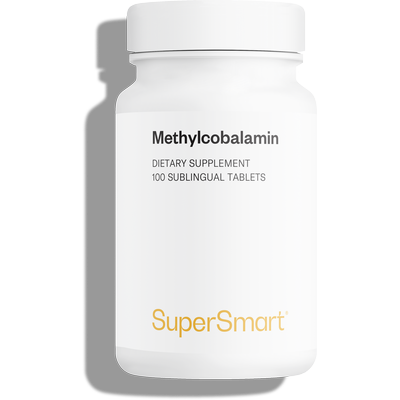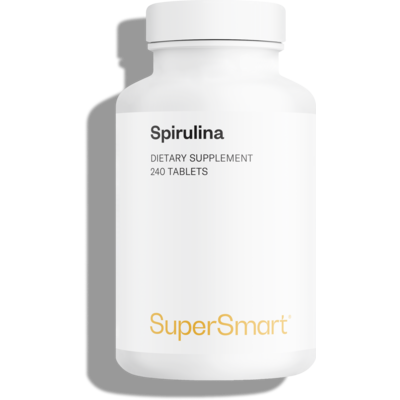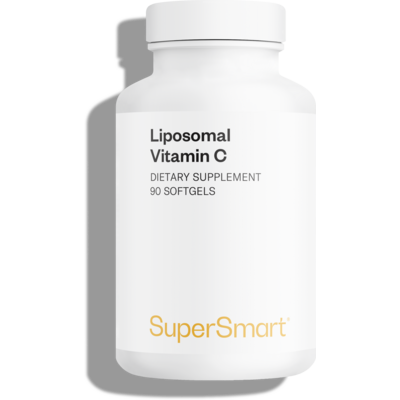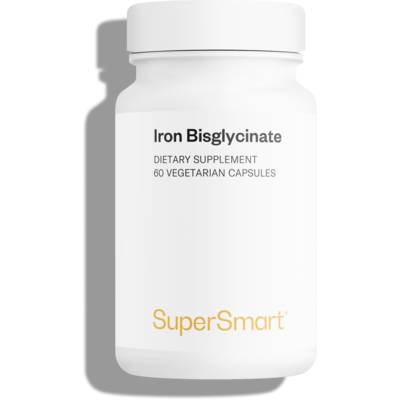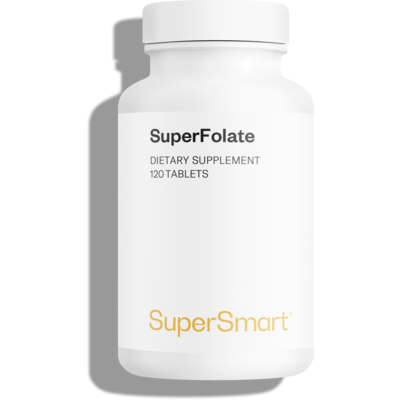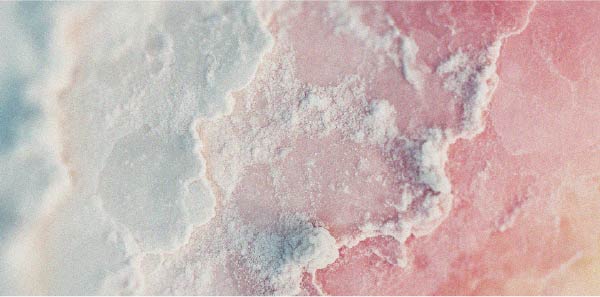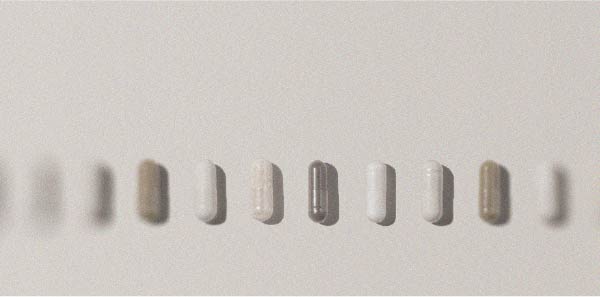Which foods should you avoid in the case of anemia?
If you’re experiencing intense fatigue or looking paler than usual, you could well be suffering from anemia. But don’t panic – here, we explore the foods you should avoid and other options for fighting anemia.

What exactly is anemia and what are its symptoms?
Anemia is a medical condition characterized by a deficit of red blood cells or hemoglobin within them, leading to insufficient oxygen in the body.
The most common cause of anemia is a a lack of iron or vitamin B12. Iron plays an essential role in the production of hemoglobin, a protein present in red blood cells, which transports oxygen from the lungs to all the body’s cells. B12 is essential for the production of DNA in the cells responsible for red blood cell formation.
Other factors, such as chronic diseases, genetic disorders, or significant blood loss, can all cause anemia.
Symptoms vary but usually include fatigue, weakness and pallor, as well as breathlessness, dizziness and a rapid or irregular heart rate. In more severe cases, anemia can also cause chest pains, headaches, and difficulty concentrating.
If you’re experiencing any such symptoms, it’s important to consult a health professional. He or she will be able to give you a precise diagnosis and recommend the appropriate treatment, which can range from dietary changes to supplementation with iron or vitamins, and even a blood transfusion in the most serious cases.
What types of iron are found in the diet?
First and foremost, we need to distinguish between the two types of iron present in our diet: haem and non-haem.
Haem iron is associated with proteins such as hemoglobin and is only found in animal-source foods. It’s the form most easily absorbed by the body, with an absorption rate of between 15% and 35%(1).
Non-haem iron is found in a wide range of foods both animal- and plant-source. However, only 2%-20% of non-haem iron is absorbed by the body (2).
Which foods should be avoided in the case of anemia?
Nutrition is hugely important in treating anemia, so it’s essential to know which foods can hinder the recovery process.
To make this easier, we’ve listed the foods below which are best avoided:
Foods high in calcium when eaten alongside those high in iron: Calcium is a mineral that can impede the body’s ability to process iron when the two are ingested at the same time. Studies have shown that consuming a meal containing 300mg–600mg of calcium can reduce iron absorption by 40%-50% (3-4).
Anaemic individuals should therefore take particular care when eating a meal containing calcium-rich foods such as cheese, milk, and yogurt as well as sardines and tofu. These foods can, however, be eaten between meals. .
Foods with a high tannin content, when also eating iron-rich foods: ubiquitous in our daily diet, in tea, coffee, wine, and dark chocolate for example, tannins are polyphenols which also interfere with the body’s iron absorption, thus reducing its bioavailability(5).
Research suggests that regular consumption of tannins has no long-term effects on iron levels as part of a healthy diet (6). But it’s advisable to avoid consuming tannin-rich foods close to meals in order to optimize iron uptake (7).
It should also be noted that tannins mainly affect non-haem iron from plant sources, rather than animal-source haem iron (8).
It’s also best to limit your intake of phytate-rich foods. Naturally present in seeds, phytates are a form of phosphorus found in almost all edible plants such as grains, oilseeds, and pulses including lentils, beans, chickpeas, and soya.
Consuming phytates inhibits the bioavailability of iron in the diet. One study showed that 5mg-10mg of phytate phosphorus added to wheat bread containing 3mg of iron halved the absorption of that iron (9).
Which foods should you focus on if you have anemia?
Combatting anemia also means following a diet that prioritises certain foods.
Iron-rich foods include offal, such as black pudding (22mg/100g), pig’s liver (18mg/100g), and lamb kidneys (12.2mg /100g), as well as red meat in general.
Bear in mind though, that consuming too much red meat is not recommended, as it can increase the risk of cardiovascular disease and some types of cancer (10).
It’s therefore best to vary your iron sources, by eating fish such as raw anchovies (5.1mg), sardines in olive oil (3.3mg) or raw sea bass (2.2 mg). Other options include seafood such as octopus (2.32mg/100 g) or mussels (6.7mg/100 g).
It’s also a good idea to include foods like sea lettuce (79mg/100g) and spirulina (28.5mg/100g), both of which have high iron content.
Add to this, supplementation with vitamin C, which is a powerful activator of iron absorption and even has the potential to reverse the inhibitory effect of the above-mentioned substances (calcium, tannins, phosphate). Diet-wise, you can find vitamin C in kiwi fruit and oranges, or add a little parsley to your dishes (11).
The cooking method used can also affect a food’s iron content. Steaming or cooking at low temperatures, for example, helps to maximize the preservation of a food’s nutrients including its iron content (12).
Which supplements should you choose to help fight anemia?
It’s essential to have a blood test before considering iron supplementation. Excess iron in the body can be harmful to health and may damage several organs (the liver, brain, joints, etc).
But once iron deficiency has been clearly identified, you can explore safe and effective iron supplements.
Be aware, however, that not all forms of iron are the same. Compounds such as ferrous sulfate, iron citrate, or iron D-gluconate can cause adverse effects like stomach problems (13).
Conversely, ferrous bisglycinate (try the product Iron Bisglycinate) is very well-tolerated and offers optimal bioavailability (14). This is because it has a low molecular weight and no ion charge, thus reducing interactions with other nutrients.
Remember too, the importance of vitamin B12 (if you need to supplement, opt for methylcobalamin, the most bioavailable form of B12).
Note that anemia can also be caused by a lack of folate (another name for vitamin B9), an important vitamin for cell production including blood cells. Folate deficiency can occur for various reasons including malnutrition, pregnancy, and the use of cytotoxic drugs ...
In such cases, and under medical supervision, targeted supplementation can be initiated (with, for example, SuperFolate).
SuperSmart ADVICE
References
- Biochemistry, Iron Absorption, Thomas Ems; Kayla St Lucia; Martin R. Huecker. (2017)
- Anémie : prévention et stratégies alimentaires, KL Becker, Encyclopédie de l'alimentation et de la santé (2016)
- Hallberg L, Brune M, Erlandsson M, Sandberg AS, Rossander-Hultén L. Calcium: effect of different amounts on nonheme- and heme-iron absorption in humans. Am J Clin Nutr. 1991 Jan;53(1):112-9. doi: 10.1093/ajcn/53.1.112. PMID: 1984335.
- JD Cook, SA Dassenko, P Whittaker, Calcium supplementation: effect on iron absorption, The American Journal of Clinical Nutrition, Volume 53, Issue 1, 1991,Pages 106-111, ISSN 0002-9165,
- Brune M, Rossander L, Hallberg L. Iron absorption and phenolic compounds: importance of different phenolic structures. Eur J Clin Nutr. 1989 Aug;43(8):547-57. PMID: 2598894.
- Mennen, L., Hirvonen, T., Arnault, N. et al. Consumption of black, green and herbal tea and iron status in French adults. Eur J Clin Nutr 61, 1174–1179 (2007).
- Morck TA, Lynch SR, Cook JD. Inhibition of food iron absorption by coffee. Am J Clin Nutr. 1983 Mar;37(3):416-20. doi: 10.1093/ajcn/37.3.416. PMID: 6402915.
- Astill C, Birch MR, Dacombe C, Humphrey PG, Martin PT (2001). Factors affecting the caffeine and polyphenol contents of black and green tea infusions. J Agric Food Chem 49, 5340–5347.
- Hallberg L. Wheat fiber, phytates and iron absorption. Scand J Gastroenterol Suppl. 1987;129:73-9. doi: 10.3109/00365528709095855. PMID: 2820048.
- Battaglia Richi E, Baumer B, Conrad B, Darioli R, Schmid A, Keller U. Health Risks Associated with Meat Consumption: A Review of Epidemiological Studies. Int J Vitam Nutr Res. 2015;85(1-2):70-8. doi: 10.1024/0300-9831/a000224. PMID: 26780279.
- Lynch SR, Cook JD. Interaction of vitamin C and iron. Ann N Y Acad Sci. 1980;355:32-44. doi: 10.1111/j.1749-6632.1980.tb21325.x. PMID: 6940487.
- Sharma S, Khandelwal R, Yadav K, Ramaswamy G, Vohra K. Effect of cooking food in iron-containing cookware on increase in blood hemoglobin level and iron content of the food: A systematic review. Nepal J Epidemiol. 2021 Jun 30;11(2):994-1005. doi: 10.3126/nje.v11i2.36682. PMID: 34290890; PMCID: PMC8266402.
- Tolkien Z, Stecher L, Mander AP, Pereira DI, Powell JJ. Ferrous sulfate supplementation causes significant gastrointestinal side-effects in adults: a systematic review and meta-analysis. PLoS One. 2015 Feb 20;10(2):e0117383. doi: 10.1371/journal.pone.0117383. PMID: 25700159; PMCID: PMC4336293.
- Name JJ, Vasconcelos AR, Valzachi Rocha Maluf MC. Iron Bisglycinate Chelate and Polymaltose Iron for the Treatment of Iron Deficiency Anemia: A Pilot Randomized Trial. Curr Pediatr Rev. 2018;14(4):261-268. doi: 10.2174/1573396314666181002170040. PMID: 30280670; PMCID: PMC6416187.
Keywords
3 Days
My skin is clearing up nicely!
Pretty good for my skin so far.
Christian
6 Days
The new packaging is excellent
The new packaging is excellent - finally! No more squashed boxes and torn envelopes.
GORAN
6 Days
Great Product
Great Product
Larry Garrett
11 Days
Quick shipping
Quick shipping; good price. No issues!
Mary McCarty
12 Days
Thr product is very good and is helping…
Thr product is very good and is helping me on my health. Then is always on time
LUGO Luz
15 Days
Buying was fine
Buying was fine. I had problems with the website not recognizing my login info, and had to call to get it fixed. Other than that, everything was good.
David S. Clark
15 Days
Your super maca and super ginseng are…phenomenal
Your super maca and super ginseng are phenomenal supplements that compliment each other when taking them together. Fantastic feeling of well-being and lots of mid day energy without the crash.
Keith Mason
18 Days
I have had amazing results with every…
I have had amazing results with every supplement I've purchased. I am extremely satisfied with this company
kirstin Torres
18 Days
Fine products
Fine products . They are on the leading edge of online supplements. The only issue -so far-is they sometime run out of subscription items.
Jason Argos
20 Days
The ordering process is very user…
The ordering process is very user friendly and the products always come in a timely manner.
CARTER Rhonda
22 Days
The price for Dr
The price for Dr. Pero's AC-11 is reasonable and in line with his views. (my former colleague). Keep it pure.
CAMPBELL Clayton
24 Days
Right on every time.
Right on every time.
Arthur Nicholas
27 Days
They are cheaper than everyone else and…
They are cheaper than everyone else and the shipping was fast. Great company.
Patricia Adams
34 Days
Availability of quality health…
Availability of quality health supplements and it's wide variety is impressive. Ordering is seamless and shipping even during the holidays is well streamlined.
Mohamad Hussein
48 Days
A Product worth waiting for when not…
A Product worth waiting for when not available and then arriving as a surprise!
DOMINIC


